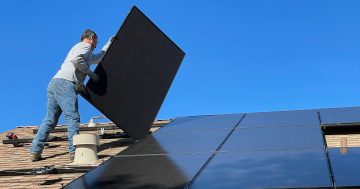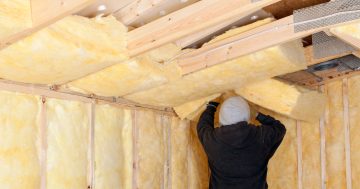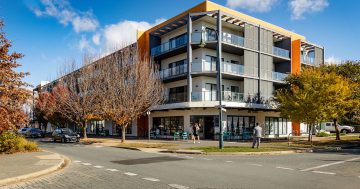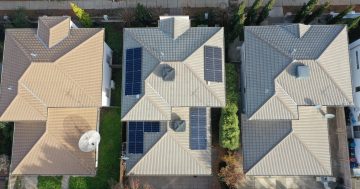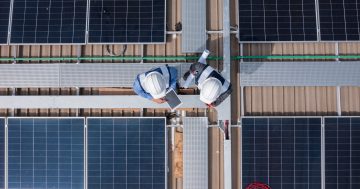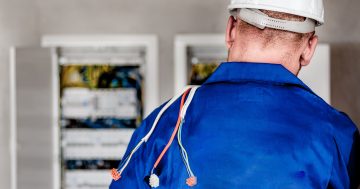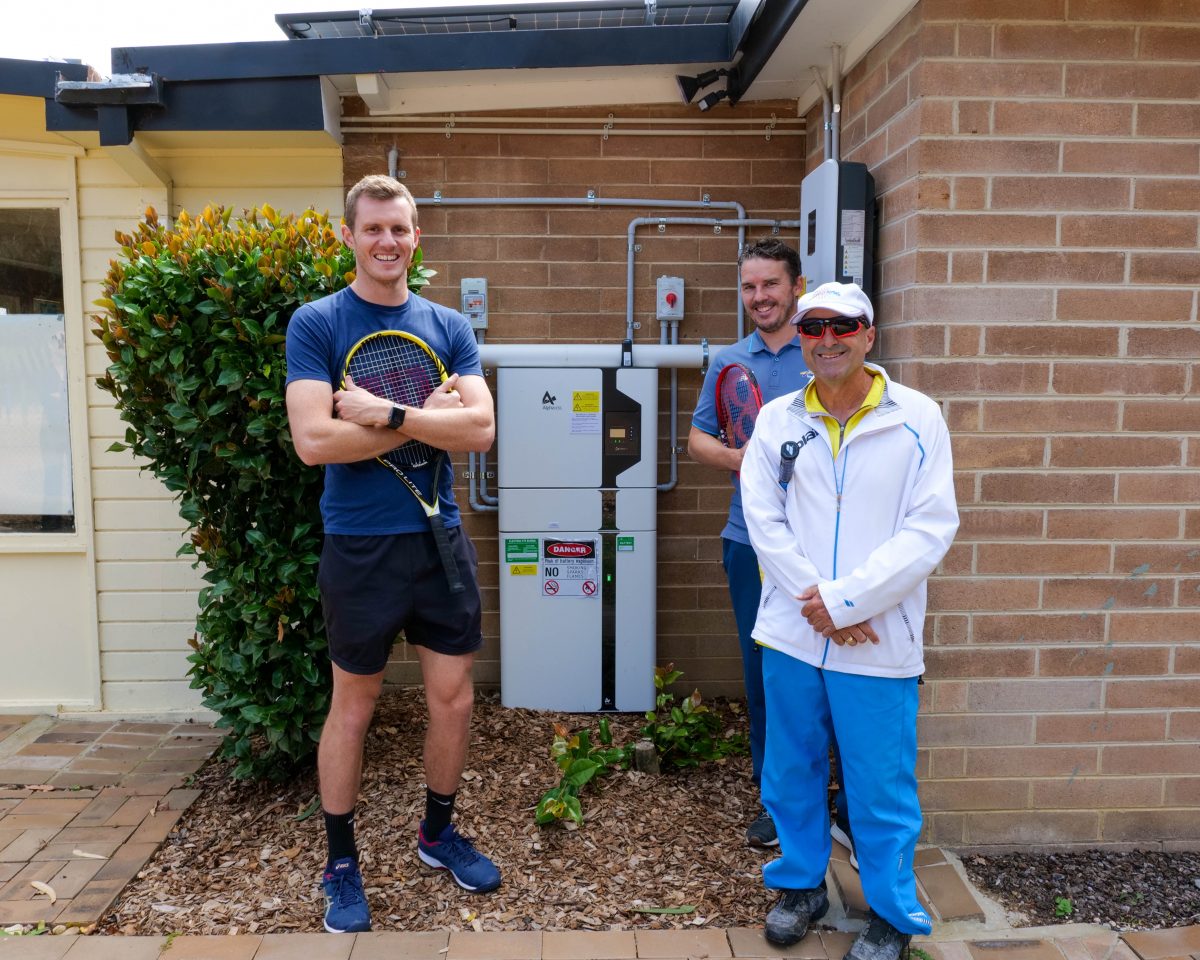
Players from Manuka Tennis Club with their new solar battery storage system purchased using a government rebate. Photo: ACT Government.
Not-for-profit community groups can now access ACT Government zero-interest loans between $2000 and $15,000 thanks to the latest expansion of the Sustainable Household Scheme.
That program has already been accessed by more than 7000 households.
In the first year of its operation, it dished out more than $60 million in loans.
Most recipients have used them to purchase rooftop solar panels but they can also be used to buy an electric vehicle or replace less energy-efficient appliances.
The loans can be used for multiple products or just one, and each carries a maximum loan term of up to a decade.
It was always the Government’s intent to expand the scheme in phases.

Chief Minister Andrew Barr says the future is all-electric but the transition will be “gradual”. Photo: ACT ESA.
Chief Minister Andrew Barr described the scheme as a “hugely successful one”.
“It ensures more Canberrans benefit from a net-zero emission future,” he said.
“The expansion of the scheme will help community organisations make small and large changes that can lead to positive impacts for the organisation and our community.”
In July, the Government said the scheme alone had generated about 25 megawatts of renewable power, catering to about 1.5 per cent of the Territory’s energy demand.
In recent months, Mr Barr and Minister for Energy and Emissions Reduction Shane Rattenbury have announced multiple schemes aimed at weaning the Territory off fossil fuels.
Both say electrification is the way of the future but the transition will be gradual and the grid will need to be strengthened with big, community and residential batteries before that can be realised.
Work is progressing on all of those “streams” of work at different rates. Most recently, a tender went out for a provider for small batteries at government sites such as schools.
It’s the Barr Government’s intention the ACT will be entirely gas-free by 2045 (excluding niche uses) and new mains connections will be banned from as early as next year.
It also anticipates banning the sale of new fossil-fuel vehicles from 2035 onwards and prohibiting new fossil-fuel cars from being introduced to the taxi or rideshare system by 2030.
Later on, the Territory’s car registration would need to be overhauled to one based on emissions, not weight.
As it announced each of these major strategies, the Government highlighted a range of supports would be available to ensure the transition to all-electric is an equitable one.
The Sustainable Household Scheme has been touted as the cornerstone of these support packages.
It’s currently capped at $150m.
Low-income households and renters will continue to be supported through other schemes, the Government has promised.
Households can also apply for the Government’s Next Gen program for a rebate of up to $3500 or 50 per cent of a solar battery’s price – whichever is lower.
That scheme is open to businesses for a much higher rebate.
To read the T & C’s and guidelines or find out more about how to apply for a loan, visit the Everyday Climate Choices website.













